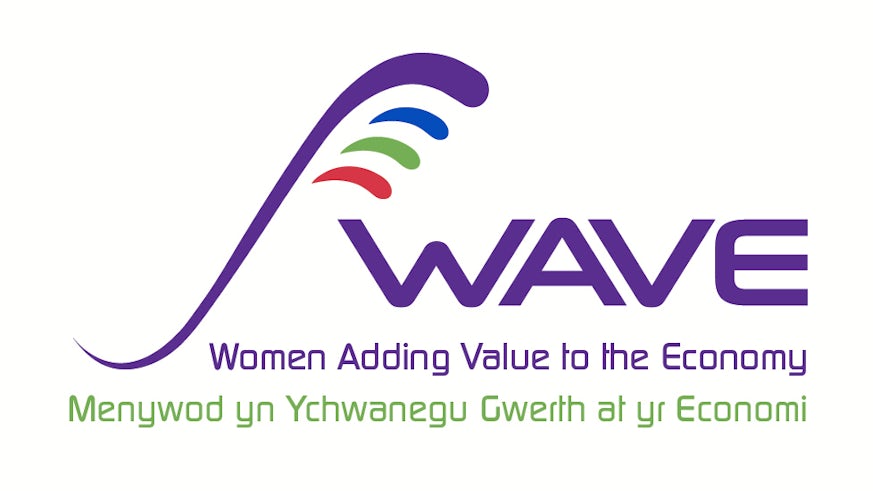Employers take up challenge to close gender pay gaps in Wales
17 June 2015

Three public sector organisations in Wales, employing a combined total of nearly 23,000 staff, have taken up the challenge to try to close the long-standing problem of gender pay gaps in the labour market
Working closely with researchers from the WAVE project at Cardiff University School of Social Sciences, the employers received a detailed analysis of their workforce and pay data, which identified the sources of earnings disparities between men and women, and each employer is now taking action to close pay gaps. The Women Adding Value to the Economy Programme is supported with Welsh Government and EU funds.
Dr Alison Parken, Research Director for WAVE at the School of Social Sciences, said: "Analysis of workforce and pay data revealed how seldom men and women work in the same jobs and grades, meaning that even best practice approaches to preventing pay discrimination will not succeed in tackling the causes of gender pay gaps.
"However, collaborating with a group of large employers to share data has proved a major step forward in getting to the heart of the problem and finding solutions. We have been able to help them begin innovative changes to workforce planning and organisational development."
The research also revealed that a significant number of women had two or more part time, or part time and casual, jobs in order to 'make work pay'; suggesting the need to question assumptions subsumed in the well-worn saying that 'women choose part time work'.
The new report (released June 17th, 2015) entitled 'From Evidence to Action on Gender Pay Gaps' details the research findings and the change management actions now underway in these organisations, and is being made available for all employers to understand the issues and improvement measures.
Among the changes being introduced by employers involved in the project are:
- Measures to remove full-time and part-time labels from job descriptions, so that over time, the term 'part timers', might lose its ability to devalue the work that women do
- Asking women in low graded part time work about their desire to move in to higher graded work, and indeed, whether they want to work part time or in fact do so because it is the only working pattern on offer
- Training for recruitment managers in how unconscious bias can affect the design of jobs and working hours
- Creating new 'ready for promotion' schemes particularly for women who may not follow the full time route to progression in professional and managerial jobs. This includes a focus on retaining women who have breaks in their careers and who return to work on a part time basis.
- Alerting casual, temporary and fixed term workers when permanent job opportunities arise.
Dr Parken continued: "Our findings show that the gendering of occupations and employment structures contributes to creating and sustaining gender pay gaps. This will continue until there is better valuing of so called 'women's work' and better opportunities to gain skills, training and transit out of part-time jobs and hours over the working lifetime.
It has been a pleasure working with the employers, they have invested enormous effort and dedication to making lasting change. We will keep supporting them in their efforts to change systems and patterns of behaviour that keep reproducing the gender pay gap generation after generation. "
Minister for Communities and Tackling Poverty, Lesley Griffiths said: "The Welsh Government is committed to supporting women in the workplace and helping ensure they get the pay they deserve.
"I am pleased we have been able to support the WAVE programme with Welsh Government and EU funding to help them tackle the gender pay gap very directly. Their work with organisations across Wales will help create a fairer workplace for women and lead to a more prosperous Welsh economy."
Joanna Davies, Workforce and Organisational Development
Director, Cwm Taf University Health Board, said: "As a major employer in
the valleys area, we have analysed the equality profile of our workforce over
the last few years, however this study took us to a whole new level in terms of
detailed analysis of the information and the opportunity to discuss what the
data was really telling us.
We are indebted to the Cardiff University WAVE
programme team for the research element of the process but also for the highly
effective change management support provided through WAVE."
The WAVE team at the School of Social Sciences is now testing a new tool with employers and hopes to assist them to to undertake their own workforce and pay analysis and change actions in the next phase of WAVE. The Gender Employment and Pay Analysis (GEPA) Method will be released next year.
The Welsh Government supports the use of GEPA by public sector organisations to meet their obligations under the unique Welsh Government's Equal Pay Duty, which requires employers to act on the employment disparities that lead to gender pay gaps.